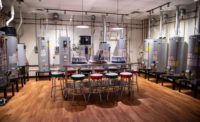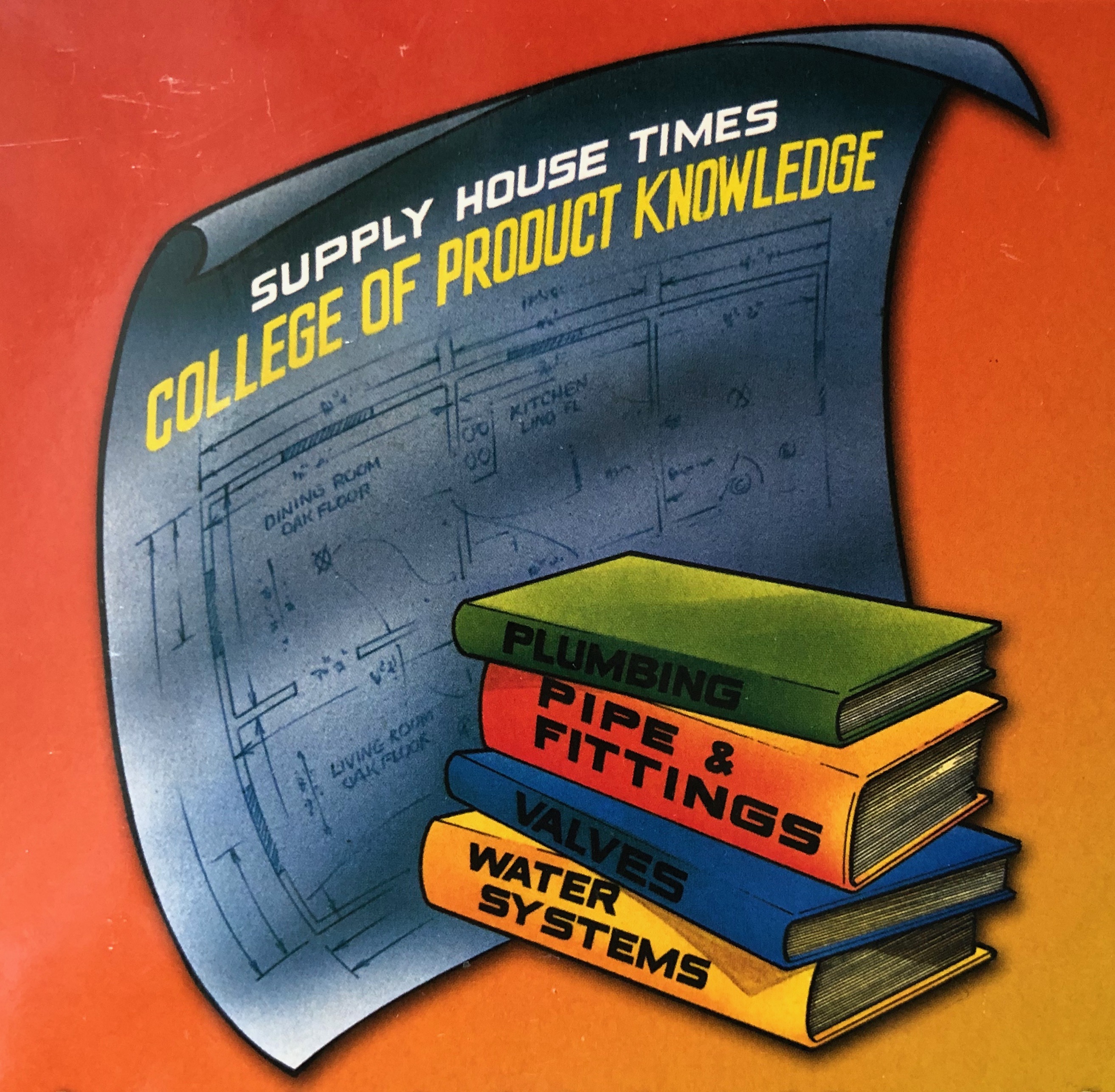Training or learning?

Trade associations must adapt to new technology.

I’ve been watching how, with few exceptions, the attendance at trade shows has been dwindling lately. At first I thought it was the economy. Hey, when business is off, who wants to spend money going to a trade show? But then I started thinking about how people learn these days and how things have changed since the iPhone showed up in 2007. Trade shows are about learning, but we’re learning differently these days.
I was talking to a friend about watching birds at the feeder (I have too much time on my hands). She asked me if I knew how long robins live. I said I didn’t have a clue. “One year,” she said. “That’s it.” I was surprised. We talked about how strange it is that you rarely see dead birds laying around the streets. You would think that with the mortality rate of robins alone there would be huge piles of them out there each winter. Where do they all go?
This went on for a while and at some point I asked her why the heck we were having this conversation. She laughed and said it was just something her husband had brought up. She didn’t know the answer so he took out his iPhone and had the one-and-done news a few seconds later.
That made me think about how we’re now learning. Ten years ago, my friend’s husband might have waited until he was at the mall to get an answer. He would have walked into one of the several bookstores (remember those?) and picked up a book on North American birds. He would have looked in the index, found robins and checked out the answer. Or maybe he would have gone to the library. That’s the place we used to go to for books before the Kindle arrived. Remember?
My friend also mentioned that a heating company’s service manager we both know was complaining that his technicians rarely come to him with their questions anymore. You would think that’s a good thing, right? Not this service manager. He felt threatened by it. His techs were getting their answers on the job by checking the websites of the equipment manufacturers with their iPhones. They also were using a lot of apps. They were going to chat rooms by way of their iPhones and asking advice from people they have never met in person, but know nonetheless.
The iPhone has changed the way we think and the way we learn. Most of us no longer want to do deep research into any subject. All we want is an answer to the immediate question and we want it right now. And when the entire world’s knowledge is searchable and in your pocket that’s easy to do.
Meanwhile, the people who we all thought would be at the show are somewhere else and getting their education in bite-sized bits from their smartphones, iPads and desktops. Trade shows are no longer the only campfire in the woods when it comes to learning. I think it’s time associations realize this and space out (or eliminate) their trade shows. The elimination option will happen naturally if they don’t space them out. What if you threw a trade show and no one came?
So here’s a thought for your consideration: Training is an event. Learning is a process. An association may see its mission as education. It holds events to provide that education. These events include trade shows, seminars, round tables and any other happening that involves a date and a price tag. The association gets the money it needs to survive from these events, which is why it’s reluctant to change. Training is an event and that’s how associations see it.
Learning, however, is not an event. It’s something that goes on continuously these days because of the ready access we all have to those bite-sized chunks of knowledge. We need to learn something right this moment so we Google it and that’s that. There’s no need to wait for the event, and less need to attend the event. Google has changed the way we learn.
And so has Facebook. Have you noticed during business meetings, or when you’re just walking down the street, how many people are consulting their smartphones? We can’t be out of touch with others for even a moment. We’ve changed.
Marianne and I were in Applebees the other day. A couple walked in and sat down at a booth across from us. They each had an iPhone and both were tapping away when they arrived. They never spoke to each other. The waiter came and took their order. They spoke to him. Then they went back to their iPhones. They never said a word to each other. I watched in fascination. And then I realized what they were doing. They were in the process of learning.
I love the social side of trade shows. I’ve always thought that more gets done at the bar and in the restaurants than gets done on the floor of the show. I’ll miss that as the shows dwindle. But the more I think about it, the people at the bar are now spending more time checking their email and Facebook than they are talking to each other anyway, so who knows, maybe all learning will soon be virtual in the years ahead. We’ll be spending most of our time with people who aren’t actually there.
Trade shows were once the main source of information about new products. Now that source is the manufacturers’ websites and their e-newsletters. And all of that is in our pockets. I hope associations are seeing this and are willing to change. If they don’t, they’re going to be gone, and it’s not going to take long for that to happen.

I’ve been watching how, with few exceptions, the attendance at trade shows has been dwindling lately. At first I thought it was the economy. Hey, when business is off, who wants to spend money going to a trade show? But then I started thinking about how people learn these days and how things have changed since the iPhone showed up in 2007. Trade shows are about learning, but we’re learning differently these days.
I was talking to a friend about watching birds at the feeder (I have too much time on my hands). She asked me if I knew how long robins live. I said I didn’t have a clue. “One year,” she said. “That’s it.” I was surprised. We talked about how strange it is that you rarely see dead birds laying around the streets. You would think that with the mortality rate of robins alone there would be huge piles of them out there each winter. Where do they all go?
This went on for a while and at some point I asked her why the heck we were having this conversation. She laughed and said it was just something her husband had brought up. She didn’t know the answer so he took out his iPhone and had the one-and-done news a few seconds later.
That made me think about how we’re now learning. Ten years ago, my friend’s husband might have waited until he was at the mall to get an answer. He would have walked into one of the several bookstores (remember those?) and picked up a book on North American birds. He would have looked in the index, found robins and checked out the answer. Or maybe he would have gone to the library. That’s the place we used to go to for books before the Kindle arrived. Remember?
My friend also mentioned that a heating company’s service manager we both know was complaining that his technicians rarely come to him with their questions anymore. You would think that’s a good thing, right? Not this service manager. He felt threatened by it. His techs were getting their answers on the job by checking the websites of the equipment manufacturers with their iPhones. They also were using a lot of apps. They were going to chat rooms by way of their iPhones and asking advice from people they have never met in person, but know nonetheless.
The iPhone has changed the way we think and the way we learn. Most of us no longer want to do deep research into any subject. All we want is an answer to the immediate question and we want it right now. And when the entire world’s knowledge is searchable and in your pocket that’s easy to do.
Changing with the times
So I’m at this trade show and chatting with one of the boiler manufacturers. There’s hardly anyone roaming the aisles. The salespeople are talking to each other and saying they’re not coming back next year. I’m thinking about how much it cost the manufacturer to be at this show. It’s not just the cost of the booth and the rental on the chairs and tables. They must have all this heavy stuff shipped from their factory, which is halfway across America. And then they have to ship it back. They have to pay the union to set it up and break it down and that’s not cheap. Then there’s the airfare, hotel rooms, meals and bar bills for their people who are talking to each other in the booth. The manufacturer told me it costs them about $75,000 to be in that show. And that’s just for one show.Meanwhile, the people who we all thought would be at the show are somewhere else and getting their education in bite-sized bits from their smartphones, iPads and desktops. Trade shows are no longer the only campfire in the woods when it comes to learning. I think it’s time associations realize this and space out (or eliminate) their trade shows. The elimination option will happen naturally if they don’t space them out. What if you threw a trade show and no one came?
So here’s a thought for your consideration: Training is an event. Learning is a process. An association may see its mission as education. It holds events to provide that education. These events include trade shows, seminars, round tables and any other happening that involves a date and a price tag. The association gets the money it needs to survive from these events, which is why it’s reluctant to change. Training is an event and that’s how associations see it.
Learning, however, is not an event. It’s something that goes on continuously these days because of the ready access we all have to those bite-sized chunks of knowledge. We need to learn something right this moment so we Google it and that’s that. There’s no need to wait for the event, and less need to attend the event. Google has changed the way we learn.
And so has Facebook. Have you noticed during business meetings, or when you’re just walking down the street, how many people are consulting their smartphones? We can’t be out of touch with others for even a moment. We’ve changed.
Marianne and I were in Applebees the other day. A couple walked in and sat down at a booth across from us. They each had an iPhone and both were tapping away when they arrived. They never spoke to each other. The waiter came and took their order. They spoke to him. Then they went back to their iPhones. They never said a word to each other. I watched in fascination. And then I realized what they were doing. They were in the process of learning.
I love the social side of trade shows. I’ve always thought that more gets done at the bar and in the restaurants than gets done on the floor of the show. I’ll miss that as the shows dwindle. But the more I think about it, the people at the bar are now spending more time checking their email and Facebook than they are talking to each other anyway, so who knows, maybe all learning will soon be virtual in the years ahead. We’ll be spending most of our time with people who aren’t actually there.
Trade shows were once the main source of information about new products. Now that source is the manufacturers’ websites and their e-newsletters. And all of that is in our pockets. I hope associations are seeing this and are willing to change. If they don’t, they’re going to be gone, and it’s not going to take long for that to happen.
Links
Looking for a reprint of this article?
From high-res PDFs to custom plaques, order your copy today!







